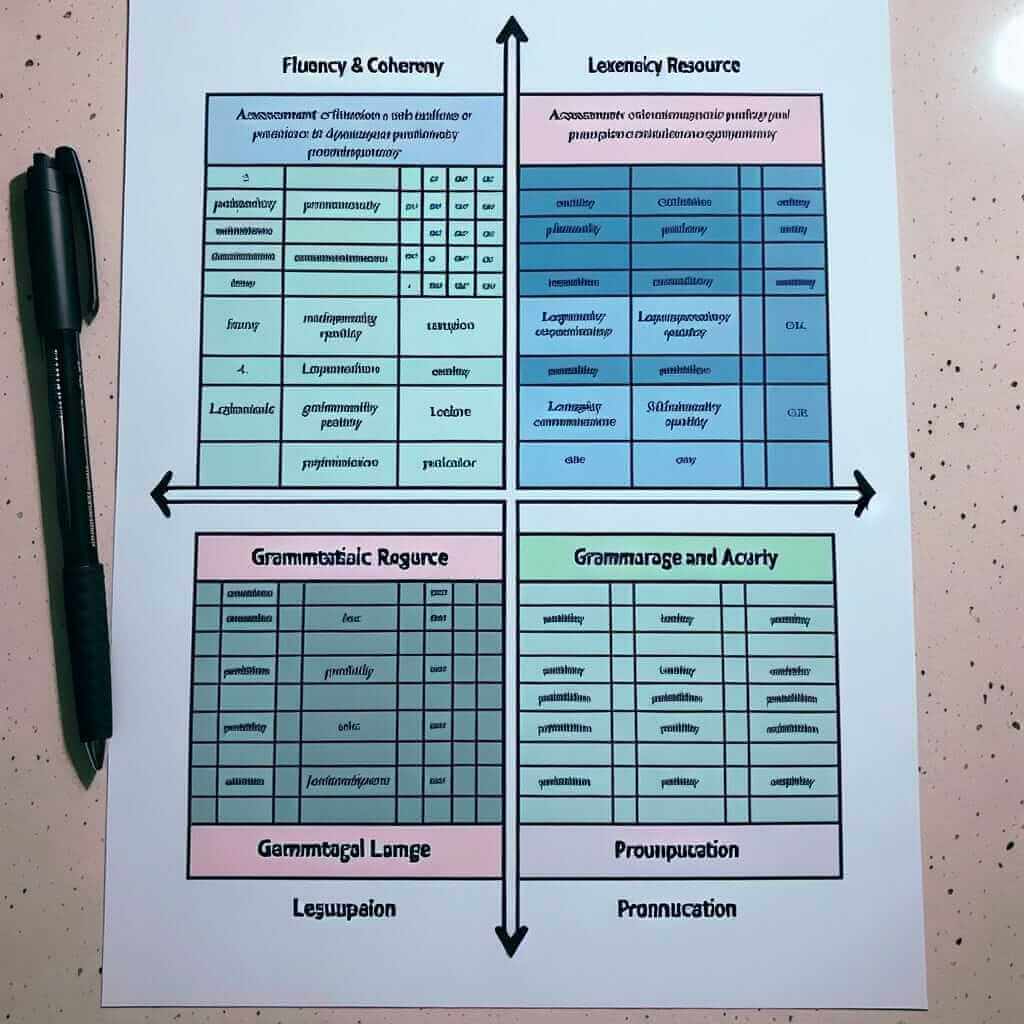The IELTS Speaking test often appears more daunting than it truly is. Many candidates, despite having strong English skills, feel nervous about this section. Why? Because it involves speaking face-to-face with an examiner, which can feel like a high-pressure situation.
As an IELTS instructor with over 20 years of experience, I’m here to demystify the IELTS Speaking test. This guide will cover everything you need to know, from its format and assessment criteria to effective preparation strategies and useful tips.
Understanding the IELTS Speaking Test Format
The IELTS Speaking test is an individual assessment, meaning you’ll interact one-on-one with a certified IELTS examiner. It’s identical for both IELTS Academic and IELTS General Training and lasts between 11-14 minutes. The test is divided into three parts:
Part 1: Introduction & Interview (4-5 minutes)
This part is designed to put you at ease. The examiner will introduce themselves and ask general questions about familiar topics like your hobbies, work, or studies. For instance, you might be asked:
- “What do you enjoy doing in your free time?”
- “Tell me about your hometown.”
- “Do you prefer reading books or watching films?”
Part 2: Individual Long Turn (3-4 minutes)
Here, you’ll receive a cue card with a specific topic. You’ll have one minute to prepare your thoughts and make notes, and then you’ll speak for 1-2 minutes on the topic. The examiner might ask one or two rounding-off questions related to what you discussed. A sample cue card might be:
- “Describe a memorable journey you have taken.”
Part 3: Two-way Discussion (4-5 minutes)
Building on the topic from Part 2, the examiner will engage you in a more in-depth discussion. This part allows you to demonstrate your ability to express and justify opinions, analyze, speculate, and compare and contrast ideas. The questions will be more abstract and require a deeper level of thought. For example, if Part 2 was about a memorable journey, Part 3 might explore the benefits of travelling.

How the IELTS Speaking Test is Assessed
Your performance in the IELTS Speaking test is evaluated based on four key criteria:
1. Fluency and Coherence: This assesses how smoothly and clearly you speak. The examiner evaluates your ability to connect ideas logically, use a range of connecting words, and speak without excessive hesitation.
2. Lexical Resource: This criterion focuses on your vocabulary range and accuracy. The examiner will pay attention to your use of synonyms, idioms, and topic-specific vocabulary.
3. Grammatical Range and Accuracy: This assesses your ability to use a variety of grammatical structures correctly. The examiner will evaluate your use of complex sentences, tenses, and grammatical accuracy.
4. Pronunciation: This doesn’t mean you need a perfect British or American accent! The key is to be easily understood. The examiner will assess your clarity, intonation, word stress, and individual sound pronunciation.
Tips for Success on the IELTS Speaking Test
Here are some valuable tips based on my years of experience helping students excel:
- Practice Regularly: The more you practice, the more confident you’ll become. Find a speaking partner, record yourself, and practice answering past IELTS Speaking test questions.
- Expand Your Vocabulary: Read widely on various topics, make note of new words and phrases, and practice using them in your speaking.
- Focus on Fluency, Not Perfection: It’s natural to make a few mistakes. Don’t let that deter you. Focus on speaking smoothly and conveying your ideas clearly.
- Listen Carefully to the Questions: Make sure you understand what’s being asked before you start speaking. Don’t be afraid to ask for clarification if needed.
- Express Your Opinions: The IELTS Speaking test is also about your ability to form and express opinions. Don’t be afraid to share your views, even if they differ from the examiner’s.
Conclusion
The IELTS Speaking test is designed to assess your ability to communicate effectively in English in a real-life setting. By understanding the test format, assessment criteria, and key tips, you can approach it with confidence. Remember, consistent practice, expanding your vocabulary, and focusing on clear communication are crucial for success. Good luck!